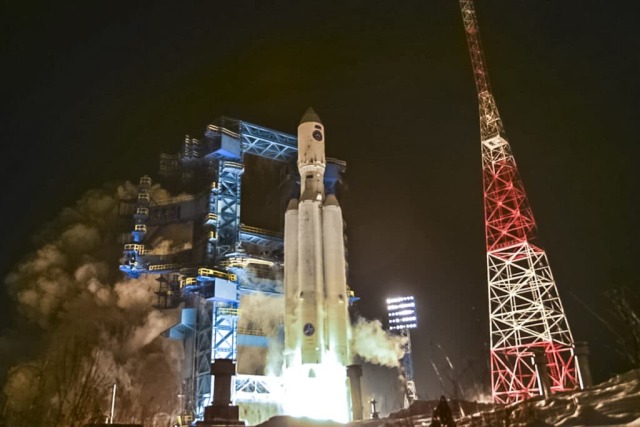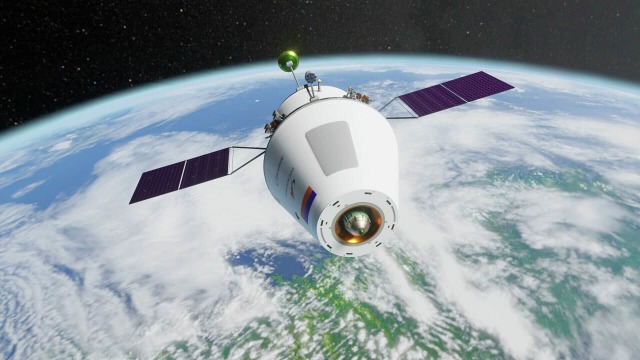Russia will not launch a new generation ship "Eagle" in 2023. The new deadline is 2024. Testing of the flight instance will begin after receiving the test results of the emergency rescue unit.
According to the head of Roscosmos Dmitry Rogozin, a flight copy of the Eagle for tests will appear in April 2024. Earlier, the space agency reported that they want to perform the first unmanned flight of the Eagle from the Vostochny cosmodrome in 2023. A year later, a flight with docking to the ISS was to take place. The first manned launch of a spacecraft was planned for 2025.
Rogozin noted that in 2024 they planned to test the Eagle with the shooting of the ship by the emergency rescue unit at the stage of operation of the first stage of the Angara-A5. Separation will occur at an altitude of 10-15 kilometers. During the landing, the ship will work out a soft landing system.
"Angara-A5" for this stage of testing will be delivered to Vostochny in 2023. The standard rocket for the ship will be the upgraded Angara-A5M, which will receive more powerful engines and a lightweight design. The improved rocket will be ready by 2024.

Launch of the Angara-A5 rocket
Image source: Ministry of Defense of the Russian Federation
There can be six astronauts on board. The payload weight is up to 500 kilograms. In the autonomous flight mode, the Eagle will be able to stay up to 30 days.
On the basis of this ship, they want to create a lightweight version of it, [...] called the "Eaglet". It will be designed for two people. It is assumed that this version can be used for flights to the Moon.
As the head of Roscosmos recently reported, the Eaglet can be launched with the help of a promising methane rocket "Amur". Its main feature will be the returnable stage.
The preparation of the draft design of the first Russian reusable methane rocket "Amur-LNG" became known last year. The rocket is being created with the expectation that it will be able to compete successfully on the world market. According to the plans, the promising carrier will replace the Soyuz-2 family after 2026.
Recall that Roscosmos recently announced the suspension of cooperation with the Europeans on launches from the Kourou cosmodrome. The reason for this step was Western sanctions. The last launch of the program for today was held in February, launching satellites for the OneWeb system.

